- Do you subscribe to Dharma Dog Training’s Newsletter? You should.
- A Unique Campaign from The Humane Society of the United States
- Rabid bats in Omaha- Stay safe, prepared with these tips
- Springtime Activities in Omaha
- Mill Dog Monthly from Bailing Out Benji
- World Spay Day, Legislative Alert in Nebraska
- Attend the Nebraska Rescue Council’s monthly meeting this Saturday
- Five Hard-to-Ignore Reasons to Adopt!
- Paws in Pink to Benefit Breast Cancer Foundation
- VCA, Inc. Acquires MidWest Vet Specialists from Kansas State University
What is “Rescue”?
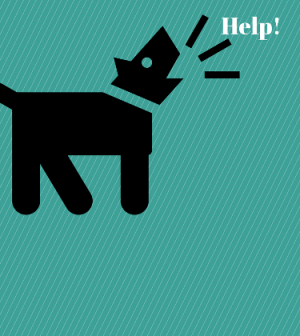
Now in my third year of writing for the pet community, I’ve written dozens of articles that could be filed under the umbrella of “Can You Help the Animals?” These posts are created after I’ve heard a story about a shelter or rescue or companion animal in need. I wrote about a cat that got thrown out of a moving car. I wrote about a shelter that took in a large number of dogs from a puppy mill. I wrote about dogs in Nepal that were being slaughtered and what we could do to help a local woman stop the killing. In most cases, the response to these stories has been completely positive.
Twice, including once very recently, I wrote posts about a shelter or rescue in need and received hate mail. I’ve heard “shame on you”, “these people don’t need help,” and even “those people are crooks.” These cries of foul don’t fall on deaf ears; in fact, they make me think a lot harder than the simple “thank you”s that always accompany the articles.
A few weeks ago, I attended the Ames Premiere of the independent documentary film, Dog by Dog. I know the impact that the film itself had on viewers, but the larger takeaway for me was what the people involved in showing the film hoped it would do. Not only did they communicate their wish for anyone and everyone to see the film and become educated, but they wished the film would “unite the rescue community.” Like the hate mail I received, this also got me thinking.
Isn’t the rescue community “united” already? It seems to me that we should all be on the same team, but apparently we are not. It seems to me that rescues are sometimes “cliquey” and in competition with each other. It seems to me that worrying about anything but helping animals is counterproductive. Among all our personal differences and preferences, what remains constant and common is everyone’s wish to “Help the Animals.” Correct me if I am wrong, but “rescue” shouldn’t involve any concern but the one about an animal’s welfare.
In searching for the reasons rescuers seem to be at odds with the word and each other, I reached out to as many people in the rescue community as I could. Some passed my questions off to others, some ignored my questions altogether and some responded. I’ve aggregated the responses below in an attempt to define what “Rescue” means. I’ve also attempted to provide a little commentary and summary after each response- this is more for myself to understand than anything else, but maybe it will help you as well.
Janelle Ford of Great Plains Pointer Rescue:
To me, rescue is a large category. It can mean aiding animals as well as people. Anyone can physically rescue an animal, and many claim they do, but true rescue itself goes beyond. It should include commitment to aiding the animal after the “rescue” takes place. It is about health, training, exercise, healing, trust, taking responsibility, unconditional love, and a lifelong bond. There are also people who just simply need help with animals in their care. Assisting with training, answering questions, and taking a little time to help explain a situation can make a difference for many. Sometimes, it is not enough and this is when rescue at an organizational level takes place. Organizations that rescue should always have a safety net to take their dogs back if it something should go awry. Our program consists of foster homes that aid in training our rescue dogs from simple commands to higher lever problems. Rescue is a team effort on many levels. We have a saying..”it takes a village” ..meaning it may take 20 people to save one animal in need. From a shelter, an owner, transporters, veterinarians, coordination volunteers, adopters, and the rescue itself…Everyone one involved has taken a part in “rescue”.
***Ok. So Janelle knows we’re all on the same team, but offers that some other rescuers don’t know everything they should do to be part of the team. Interesting.***
Mindi Callison of Bailing Out Benji:
Animal rescue is a very eclectic term. What is an animal rescuer? To me, it is anyone who adopts, fosters, transports, donates, volunteers or gives their voice to the animals that have none. By breaking down barriers and realizing that we are all tiny cogs in this big machine, it will push our mission (to save as many lives as possible) to new heights. Any one who is doing what they can to help animals is a hero and a rescuer in my book.
***Mindi’s got a very unique way of being part of the team and offers that anyone doing anything, no matter how large or small, is important. That’s hard to disagree with. The word eclectic indicates she also knows, like Janelle, that there are many moving parts in this “big machine.” It’s a process and these ladies get in on all parts of it. ***
Katt Flockhart of Kitty City:
Rescue to me, means ‘help’ whether the animal is a stray, orphan, puppy mill dog, hoarder animal, or owner surrender. As an ‘ animal rescue’ we are a safe haven, to help vet ( spay neuter) medically treat if needed ( wounds, injuries) provide shelter, food and necessities to those who are in need of my HELP. Just to all around take care of the animals needs. I’ve come across many owners seeking my help, who have been angered at the word ‘ rescue’ just because they think of the only animal in need of rescue, is an abused one, a fight dog, bait dog, puppy mill dog, hoarder cat, orphaned kittens, injured kittens, etc… Rescue is not just for those in need of medical care, but to provide a safe, non time restricted ( in the case of Kitty City, no kill) HOME for them. Rescue to me also means, each and EVERY one. I will never pick and choose who is the prettiest, or most highly adoptable to enter my rescue. Each and every animal, deserves a chance at rescue, and the right to help which is available. It has involved many things for me, from entering a filthy ammonia filled hoarder house, ( being sick myself several days after) to sitting for 10 hours looking at the looks of desperation and also hope on puppy mill dogs being lined up for auction, ( HEARTBREAKING, and you never forgive yourself for not ‘buying’ more) force feeding orphaned babies, cats and dogs both, whose mother is nowhere to be found, loving up the 15 year old dog the owners ‘ just don’t want’ anymore, and treating atrocious wounds that anger me, as they were purposely inflicted by the hands of a human. Sometimes you have to pull yourself out of a trance of, ‘ oh my goodness. HOW could this happen to you?’ and focus on the help at hand, and cry about it and ask questions later. You have to harden your heart a little bit in this line of work somewhat. I still cry, I always will, when I lose one no matter what the cause. And also on the days when I get an update of a very loved, new family member I adopted out smile emoticon When I see horrific human caused wounds, I get so angry and want to quit. Thinking. ‘ I cant do this anymore. I cant SEE this anymore.’ But if I am going to be miserable NOT rescuing animals, which I would be, I’d still be seeing and hearing about inhumane care, abuse, abandonment, etc…. I might as well just have a miserable day once in awhile, while celebrating the rest saving lives!
***Katt’s “rescue” isn’t just a process, it seems, it’s a philosophy. And her definition is similar to mine, I suppose- take something from a bad situation and get it into a better one. It’s also interesting to see the emotion and psychological toll this can take. She’s optimistic and hopeful and that’s important in being someone who rescues if you ask me. ***
Cherie Fry of Paws to Angels
I define rescue as an animal that has been abused, neglected, and left unwanted that is brought into an organization of people who give of their time, money, and home to provide the needed care to an animal and place into a loving forever home. I have adopted three rescue pets of my own who have brought such great joy to my life. Over the last couple of years I have been a foster pet parent for Midwest Dog Rescue Network and in my spare time I volunteer for Taysia Blue Siberian Husky Rescue.
I began my work with rescue groups just shortly after opening Paws To Angels Pet Loss Center when Jackie Roach founder of Taysia Blue Siberian Husky Rescue approached me about providing care to her “In Rescue” dogs that become terminally ill and pass away.) I’ll never forget what she said to me “My dogs have been through heck their whole lives and the best gift that I can give to them in death is Respect and Dignity ” Jackie and I share much of the same vision when it comes to these precious souls that they do deserve the best care when it comes to lives and to whom fosters that care, also to change our part of the world through, extraordinary, compassionate care, and education. I do a great amount of work with the foster families who care for the ill and dying ones and walk with them through their grief journeys. The bonds that some of these fosters share with rescue animals can be very deep, when that bond is broken they need a hand to hold, and someone who understands them too, I’m more then honored and humbled to be here for them.
I believe we all work for the same common good of the animals and those that care for them, it’s takes teamwork, passion, and compassion to work together ,today I am honored to be partnered with Taysia Blue Siberian Husky Rescue, Pug Partners of NE, Nebraska Dachshund Rescue, Midlands Humane Society and Pets In Omaha.
***Cherie’s been specific about the parts of the process she’s been involved with- one part is the very end of it. Like all rescuers say, the “forever home” is the ultimate goal for these animals. Cherie is there all the way to the end and provides support to anyone who needs it after an animal’s life ends- a life that was harder than it should have been. ***
Gina Rotella, trainer at Dharma Dog Training, formerly of Helping Hands Rescue
To me, the word “Rescue” means helping those who are unable to help themselves…The voiceless and innocent.
There are several ways to assist and make a difference in the rescue community, such as: Adopting, Donating, Volunteering, Fostering, Educating, etc. The primary way I help is through training. Dogs are relinquished to shelters or re-homed for various reasons, but one of the main reasons is due to lack of training. I believe that by empowering, educating and providing owners, rescue organizations, fosters, etc. the tools and education to help train the dogs, the less likely they will end up in shelters and rescues.
***Gina knows the ins-and-outs as she was with Helping Hands before, but now focuses on training- a place where she feels she can make a big impact. There is a big problem in rescue (one that Gina is attempting to solve) in that shelters and rescues, at this point, are like a busy night club. One-in, one-out. How do we solve that problem. Many ways are available, but Gina’s going with the training-to-keep-dogs-in-the-home route. It works, so good on you, Gina. ***
Kelley McAtee, owner and trainer at Dharma Dog Training
What Rescue basically means to me is: A chance for a better life and and understanding that people and animals can change. The belief that homeless animals should not be discarded or considered throw away animals because there are not enough homes for them. They deserve second chances, so rescuing is the first part, the second part is knowing how to handle any behavior issues that rescue animals bring with them to keep them in their home. I agree with Gina that by empowering and educating owners we can help animals stay out of shelters and rescues and in their homes.
I have studied pet overpopulation since college in 2000, and did an independent study on our local animal shelter. I started out volunteering in rescue and realized how much in fighting went on and how unhealthy it can be, focusing on putting out fires and trying to stop the flow of homeless animals was mentally exhausting. So I had to figure out another way to help animals and prevent animals from ending up there in the first place, which I believe comes down to shutting down puppy mills, spaying & neutering, training and rehabilitating to keep animals in there home. Pet overpopulation is a societal problem and is everyone’s responsibility. If everyone could put aside differences and focus on how to put an end to this epidemic, maybe we could solve the problem of 11,000 animals dying daily in our country and being dumped into our landfills. That is why our dog training company specializes in rescue dogs and empowering owners with tools to help them while supporting spay & neuter efforts locally and around the world.
***Avoid bad situations, train to keep them in their original homes and to keep them from returning to a rescue or shelter. We’re starting to see, even from this small sample of responses, that the same answers start to pop up. This says, to me, that the answer is difficult, but working together and communicating our intentions can get us all closer to that goal of “being on the same team” and working with one goal in mind- help the animals. Nothing more or less than that goal seems important.
Do you agree the the commentary? With the definitions? Have your own definition? We’d love to hear what you are doing to “rescue” and what you think it means in the end. Use our Contact Page, find us on Twitter, Facebook and elsewhere.
Related Posts
Latest News
-
Join Us at Pick A Pooch 2024: A Fun-Filled Weekend for the Whole Family
Join Us at Pick A Pooch 2024: A Fun-Filled Weekend...
- Posted 4 weeks ago
- 0
-
How Can I Help My Pet Sustain A Healthy Weight?
Does your dog or cat need to shed excess pounds,...
- Posted 3 weeks ago
- 0
-
How Can I Socialize My Pet With Other Animals?
Are you planning on bringing home a new dog or...
- Posted 1 month ago
- 0
-
Nebraska Humane Society update…
The Nebraska Humane Society has resumed some dog adoptions after...
- Posted 1 month ago
- 0
-
What Are The Signs Of A Well-Adjusted And Happy Pet?
Have you ever wondered whether your dog or cat is...
- Posted 1 month ago
- 0
-
How Can I Create A Safe Environment For My Pet At Home?
Did you recently acquire a new furry friend and want...
- Posted 1 month ago
- 0
-
What Are The Potential Hazards For My Pet In My Yard Or Garden?
Do you have a furry friend, and you want them...
- Posted 2 months ago
- 0



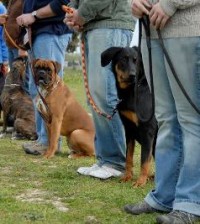
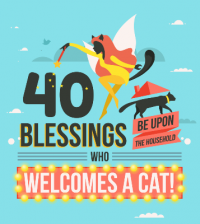
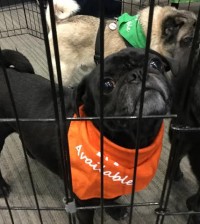


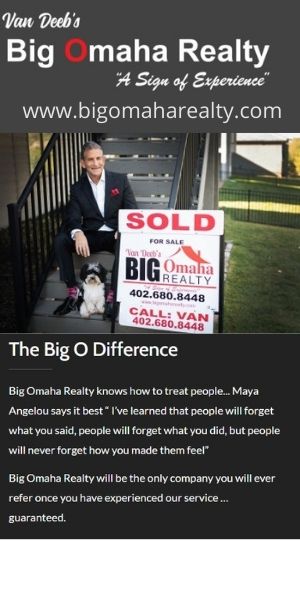






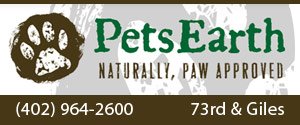
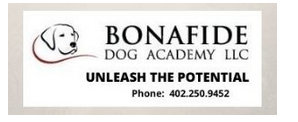

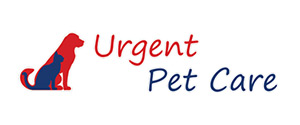




You must be logged in to post a comment Login